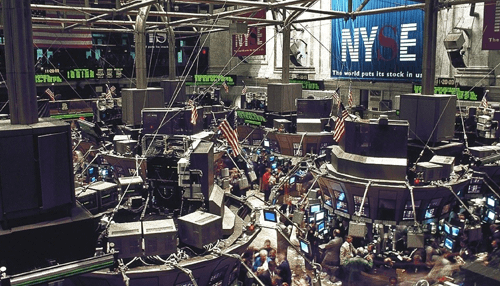Most people talk about ordinary shares when they talk about equity investments, but investors can also benefit from the unique and valuable opportunities that come from buying shares before going public in the form of crowdfunding, as well as from private companies seeking an IPO. The advantages of IPO investors are obvious: when companies list their shares on the stock exchange, they make a lot of money from their investments. Some investors prefer to invest in public companies because investors shares are cheaper than their private sector equities. PIPE investments, due to the high return and low investment costs.
Offering shares to the public has other advantages for companies, such as listing their shares on the stock exchange. Listing on the stock exchanges also offers Companies have increased credibility with the public, because the listing of your company gives you the prestige of being supported by the company by letting them trade. While some companies can forget this prestige when their shares are listed on the stock exchange, the other advantage for these companies is that they have a company that is supported by those who have their shares listed on the stock exchange.
Value – Conscious companies only buy back shares if their shares are traded below the best management valuations. If the share price falls, the company sends a positive signal to the market that it is investing its capital by buying back shares. Better returns are possible if you invest in the company and buy back value-conscious companies at a lower price than management estimates.
However, there is a way to invest in shares before you go public and make sure you do not have to be an official investor. The private equity market for US public company shares is largely open to everyone. Anyone interested in private equity must have invested in an exchange and officially become an “investor.”
When a public company is bought out, the stock does not exist when it is bought, but when an investor buys a stock, he or she becomes a shareholder in the company and receives equity in his or her business. Since shares give you shares in a company, owning shares in that company means you have a say in the day-to-day running of that company.
If a company’s shares perform well and are subject to a trading halt or interruption, you can buy and sell company shares on the stock exchange. If your shares perform badly and you are one of the thousands of shareholders on the stock exchange, you can choose to sell shares slowly over time or block trading with a larger investor.
Brokers allow you to easily buy and sell shares in public companies and charge fees for their services. We give you some tips on how to invest in company shares before they go public. Once you have found a company you want to invest in, you will need to hire a broker to buy shares in the company.
Reading shares also begins with understanding why a company sells ownership positions in the company. This is more complicated in the case of public companies, where both buyers and sellers can buy and sell shares of companies. The problem for investors buying shares in an IPO is that you often buy from someone who knows more about the company than you do. When investors buy shares, they buy ownership of a company when they do, and they buy shares before the IPO.
When you buy one of these companies, the shareholders of the company you buy receive a remuneration for their shares. For example, if a company pays a 5% dividend and you hold 100 shares of that company, you get five additional shares, bringing your holding to 105 shares, and vice versa. [Sources: 3, 5]
Instead of shares owned by the company, public shares belong to shareholders who are part of the public, and not to a public company or holding company.
Public companies are also referred to as listed companies, listed companies or listed companies. Public companies may or may not be listed on a stock exchange or exchange, which facilitates trading in shares, and shares are freely traded on stock exchanges and off-exchange markets. A publicly traded company or holding company (or a publicly traded company) is a company whose ownership is organized around the shares intended for the public, the general public, or the people of the United States, Canada, Australia, New Zealand, and other countries. Shareholders may be either shareholders of a public limited company or anyone investing in shares issued by a public limited company, whether private or public, or in any other public limited company.
If you are looking for UK public companies then the free to use site reportingaccouts.com has all UK PLC companies listed.
Common shares (also known as common shares, common bonds or common shares) are the ownership units of a public limited company. A share is a collection of shares in a company; it is the simple summary of all shares in that company. Shares represent a share of ownership of the company, while shares are collections of shares in several companies. Shares are either the collection and / or ownership of shares in an individual company or group of individuals or companies.



